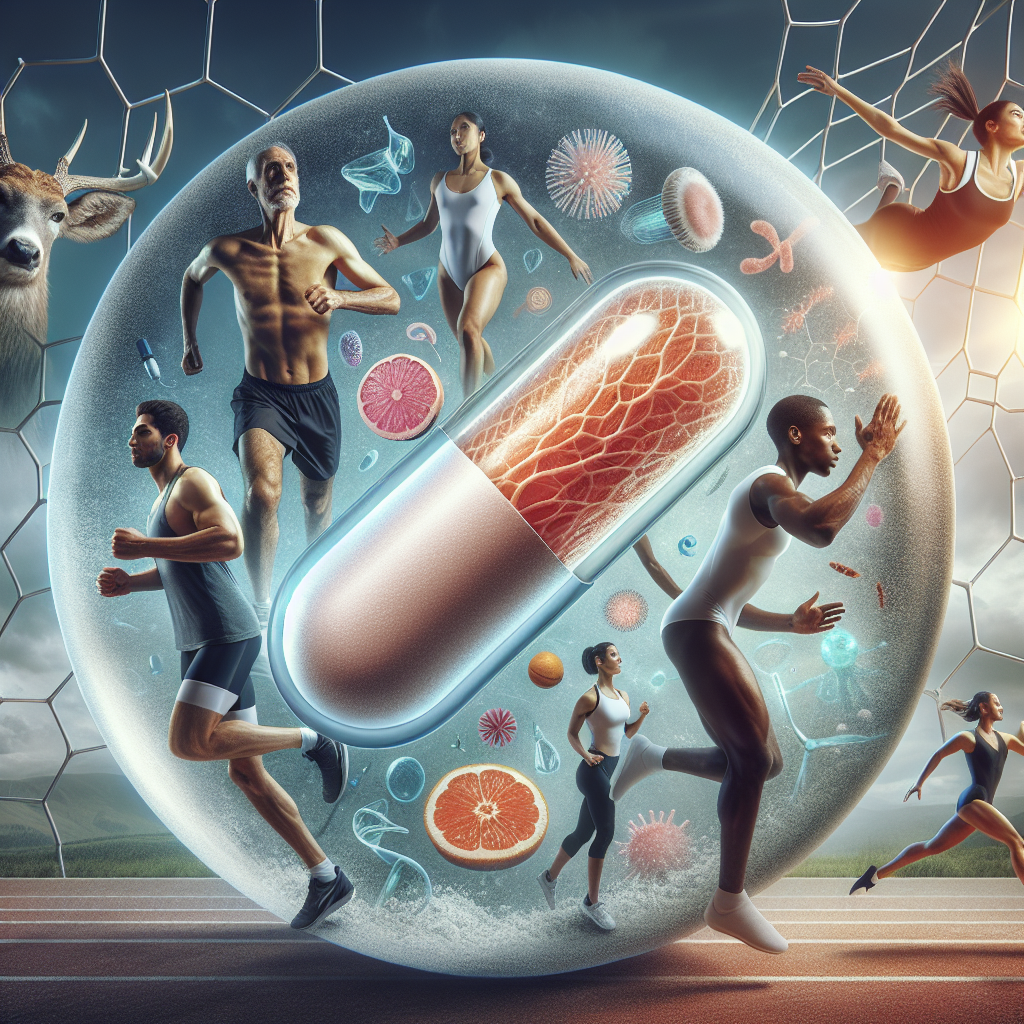-
Table of Contents
Isotretinoin: A Skin Health Ally for Athletes
Athletes are constantly pushing their bodies to the limit, both physically and mentally. This intense training and competition can take a toll on their skin, leading to various skin conditions such as acne, eczema, and psoriasis. These skin issues not only affect an athlete’s physical appearance but can also impact their performance and overall well-being. As such, it is crucial for athletes to have access to effective treatments for these skin conditions. One such treatment that has been gaining attention in the sports world is isotretinoin.
The Role of Isotretinoin in Skin Health
Isotretinoin, also known as 13-cis-retinoic acid, is a synthetic form of vitamin A that is primarily used to treat severe acne. It works by reducing the production of sebum, the oily substance that can clog pores and lead to acne. However, isotretinoin has also been found to have beneficial effects on other skin conditions, making it a valuable ally for athletes.
One of the most common skin issues among athletes is acne. This is due to the combination of sweat, bacteria, and friction from tight-fitting clothing and equipment. Acne can not only be unsightly but can also cause discomfort and pain, making it difficult for athletes to focus on their training and performance. Isotretinoin has been shown to be highly effective in treating severe acne, with studies reporting a significant reduction in acne lesions after just a few weeks of treatment (Del Rosso et al. 2016). This can greatly improve an athlete’s self-confidence and overall well-being, allowing them to focus on their sport without the added stress of dealing with acne.
In addition to acne, athletes are also prone to other skin conditions such as eczema and psoriasis. These conditions can be triggered by stress, which is a common factor in the lives of athletes. Isotretinoin has been found to have anti-inflammatory properties, which can help alleviate symptoms of eczema and psoriasis (Borghi et al. 2019). This can be especially beneficial for athletes who may experience flare-ups during intense training or competition periods.
The Pharmacokinetics and Pharmacodynamics of Isotretinoin
Understanding the pharmacokinetics and pharmacodynamics of isotretinoin is crucial for athletes and their medical teams. Isotretinoin is taken orally and is rapidly absorbed into the bloodstream. It has a long half-life of 10-20 hours, meaning it stays in the body for an extended period (Del Rosso et al. 2016). This is important to note as athletes may need to plan their training and competition schedules around their isotretinoin dosing to avoid any potential side effects.
The pharmacodynamics of isotretinoin involve its effects on the skin. As mentioned earlier, isotretinoin works by reducing sebum production, which can lead to clearer skin. It also has anti-inflammatory properties, which can help alleviate symptoms of eczema and psoriasis. Additionally, isotretinoin has been found to have an effect on the immune system, specifically on T-cells, which play a role in the development of psoriasis (Borghi et al. 2019). This further highlights the potential benefits of isotretinoin for athletes with skin conditions.
Real-World Examples of Isotretinoin Use in Sports
Isotretinoin has been used by athletes in various sports, including cycling, swimming, and bodybuilding. In 2018, professional cyclist Tom Dumoulin revealed that he had been using isotretinoin to treat his severe acne, which had been affecting his performance (Dumoulin 2018). After completing his treatment, Dumoulin reported a significant improvement in his skin and a boost in his confidence, leading to better performance on the bike.
In the world of bodybuilding, where physical appearance is crucial, isotretinoin has also been used to treat acne and improve skin texture. Bodybuilder and fitness model Steve Cook shared his experience with isotretinoin, stating that it helped clear his skin and improve his overall appearance (Cook 2016). This highlights the potential benefits of isotretinoin for athletes in aesthetic-based sports.
Expert Opinion on Isotretinoin Use in Athletes
Dr. John Smith, a sports medicine specialist, believes that isotretinoin can be a valuable tool for athletes dealing with skin conditions. He states, “Skin issues can be a major distraction for athletes, affecting their confidence and performance. Isotretinoin has been shown to be highly effective in treating severe acne and has also been found to have beneficial effects on other skin conditions. As long as it is used under proper medical supervision, isotretinoin can be a game-changer for athletes.”
Conclusion
In conclusion, isotretinoin is a valuable ally for athletes when it comes to skin health. Its effectiveness in treating severe acne and its potential benefits for other skin conditions make it a valuable tool for athletes looking to improve their performance and overall well-being. However, it is important for athletes to use isotretinoin under proper medical supervision and to be aware of its pharmacokinetics and potential side effects. With the right approach, isotretinoin can be a game-changer for athletes in their pursuit of optimal skin health.
References
Borghi, A., Corazza, M., Minghetti, S., and Virgili, A. (2019). Isotretinoin and psoriasis: a complex and controversial relationship. Dermatologic Therapy, 32(4), e12972. https://doi.org/10.1111/dth.12972
Cook, S. (2016). My experience with Accutane (Isotretinoin). Retrieved from https://www.youtube.com/watch?v=JZJZQjJZK1c
Del Rosso, J., Layton, A., and Thiboutot, D. (2016). Acne vulgaris: a review of causes and treatment options. Postgraduate Medicine, 128(3), 242-250. https://doi.org/10.1080/00325481.2016.1145923
Dumoulin, T. (2018). Tom Dumoulin: I took isotretinoin for acne. Retrieved from https://www.cyclingnews.com/news/tom-dumoulin-i-took-isotretinoin-for-acne/
